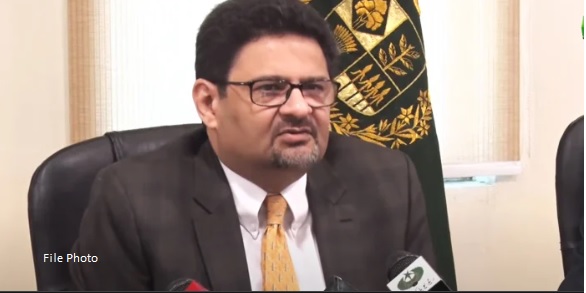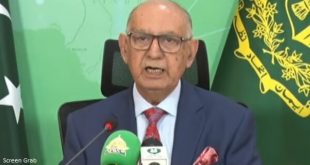Web Desk — In a breakthrough, Pakistan and the International Monetary Fund (IMF) on Tuesday night finally reached an understanding on the federal budget 2022-23, leading to a revival of the extended fund facility (EFF) after authorities committed to generating Rs436 billion more taxes and increase petroleum levy gradually up to Rs50 per liter.
The understanding was reached during a meeting, held via video link, between the IMF staff mission and the Pakistani economic team, led by Finance Minister Miftah Ismail.
IMF Resident Representative in Pakistan, Esther Perez Ruiz acknowledged that important progress has been made over the FY23 budget.
From now onwards, the IMF mission will finalize monetary targets with the State Bank over the next couple of days and, in the meantime, share the draft of a Memorandum of Economic and Financial Policy (MEFP).
The MEFP would also contain certain prior actions that would be necessary for implementation before the IMF board takes up Pakistan’s case for approval and the subsequent disbursement of about $1bn next month.
“We have now locked the budget in consultation with the IMF,” Finance Minister Ismail told journalists, adding that all budget-related issues had been settled with the Fund.”
Top government sources said that to win over the IMF mission, the Pakistani side had agreed to start charging on all POL products a petroleum development levy which will be gradually increased by Rs5 per month to reach a maximum of Rs50.
The government, in yet another retreat, also agreed to impose 1pc poverty tax on firms earning Rs150 million, 2pc on those earning Rs200m, 3pc on over Rs250m, and 4pc on Rs300m above. In the original budget, the government had set a 2pc poverty tax only on those earning Rs300m and above.
The government also agreed to do away with provisions for additional salaries and pensions, for which Rs200bn had been set aside as block allocation. Instead, a separate allocation of contingencies had been made but that would be strictly meant for emergencies like floods and earthquakes so that amount remains unspent.
Pakistan also accepted to deliver Rs152bn primary budget surplus, which means the revenues would finance all expenditures — other than interest payments — and still leave Rs152bn surplus in the national kitty.
The sources said the IMF team will now finalize targets for net international reserves and net domestic assets, but everything on part of the agreement had been settled. According to sources, the IMF team would share its draft MEFP with the government on Friday.
Tax collection target lifted
In a bid to placate the technical team of the International Monetary Fund (IMF, the coalition government has agreed to revise upward the annual tax collection target by almost Rs422bn for the year 2022-23 by taking additional tax measures.
“We have taken tangible additional tax measures without adding to the tax burden of the poor”, well-placed sources in the finance ministry told Dawn.
The additional tax measures will be announced in the final budget speech by Finance Minister Miftah Ismail. Sources said that the additional measures will only hit the affluent class.
According to official sources, a formal agreement has been reached following FBR’s assent to revise its annual collection target from Rs7004 billion to Rs7426billion for the year 2022-23. This increase has all but cleared the way for the resumption of the IMF programme.




